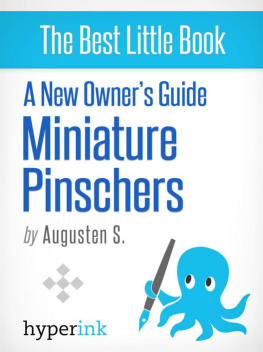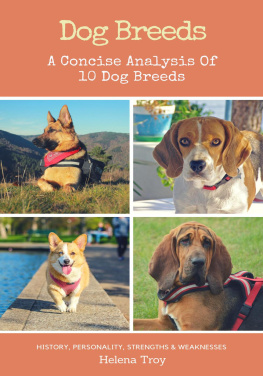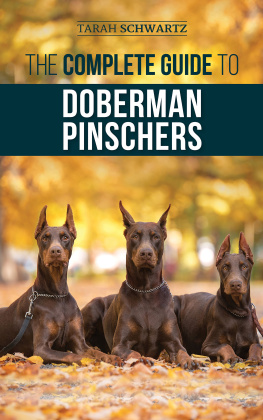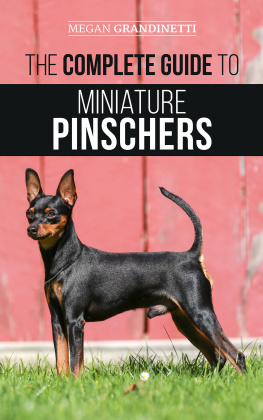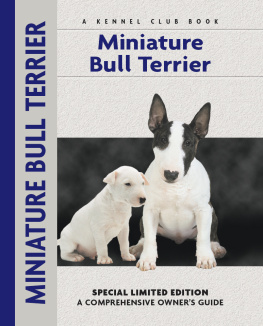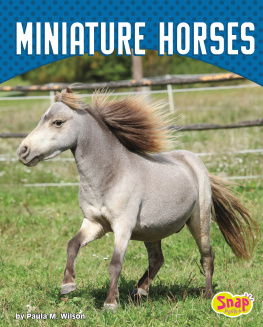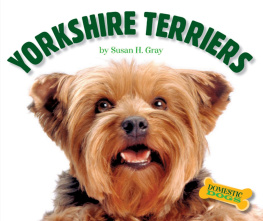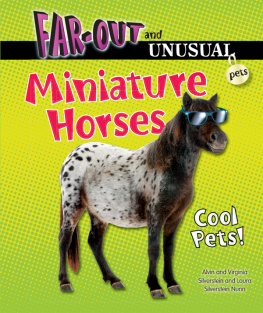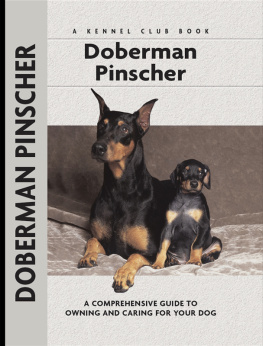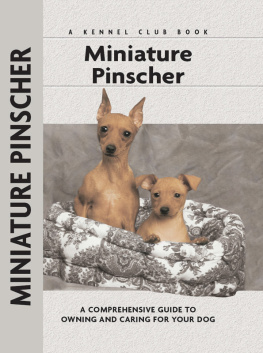Augusten S. - Miniature Pinscher: Training, Grooming, and Dog Care
Here you can read online Augusten S. - Miniature Pinscher: Training, Grooming, and Dog Care full text of the book (entire story) in english for free. Download pdf and epub, get meaning, cover and reviews about this ebook. year: 2012, publisher: Hyperink, genre: Children. Description of the work, (preface) as well as reviews are available. Best literature library LitArk.com created for fans of good reading and offers a wide selection of genres:
Romance novel
Science fiction
Adventure
Detective
Science
History
Home and family
Prose
Art
Politics
Computer
Non-fiction
Religion
Business
Children
Humor
Choose a favorite category and find really read worthwhile books. Enjoy immersion in the world of imagination, feel the emotions of the characters or learn something new for yourself, make an fascinating discovery.
- Book:Miniature Pinscher: Training, Grooming, and Dog Care
- Author:
- Publisher:Hyperink
- Genre:
- Year:2012
- Rating:5 / 5
- Favourites:Add to favourites
- Your mark:
Miniature Pinscher: Training, Grooming, and Dog Care: summary, description and annotation
We offer to read an annotation, description, summary or preface (depends on what the author of the book "Miniature Pinscher: Training, Grooming, and Dog Care" wrote himself). If you haven't found the necessary information about the book — write in the comments, we will try to find it.
ABOUT THE BOOK
Miniature Pinschers are a unique, sassy breed with broad appeal. The Miniature Pinscher has been bred over time to handle the specific demands and requirements of farmers, so these dogs have a high-energy personality that does not waver much between individuals.How did Miniature Pinschers make it into the hearts and homes of millions? We can only answer this question by looking back at their history. The Miniature Pinscher originates in Germany, and is surprisingly unrelated to Doberman Pinschers. This breeds closest ancestors are the Italian Greyhound and the Dachshund, both of whom also have sleek, sporty frames.Miniature Pinschers were originally bred to be a hunting breed; they were not house pets, but working dogs often left to their own devices. Their characteristic cropped ears and tail, as outlined in the American Kennel Clubs (AKC) guidelines, trace back to the breeds history as a hunter, as ears and tails were often cropped short to minimize the risk of damage and infection from rodent bites or errant horse hooves.
EXCERPT FROM THE BOOK
Treat your dog with a flea and tick preventative in the spring and summertime. Fleas, ticks, and other insects carry parasites and other illnesses, making them a risk as well as a nuisance. If your dog spends any time outdoors, he should have a flea and tick preventative to ward off any intruders. This keeps your home and indoor pets safe from pests as well. Your veterinarian will likely have recommendations for safe preventatives, so be sure to ask during your annual visit if you are at all uncertain.Miniature Pinschers are fairly healthy dogs, but they are prone to a few breed-specific conditions.First and foremost, Miniature Pinschers skinny legs are prone to injuries. If you have children, special care must be taken to ensure all play is safe. On a similar note, Miniature Pinschers are prone to kneecap displacement.Aging Miniature Pinschers are prone to hip joint degeneration, so regular veterinary examinations and possible supplementation are an excellent idea when your Miniature Pinscher reaches advanced age. Glucosamine supplementation and anti-inflammatory drugs are excellent options for arthritic pets. However, the best medicine is prevention, so do your best to provide your young Miniature Pinscher plenty of exercise to encourage the development of strong joints and bones...Buy a copy to keep reading!
Augusten S.: author's other books
Who wrote Miniature Pinscher: Training, Grooming, and Dog Care? Find out the surname, the name of the author of the book and a list of all author's works by series.

